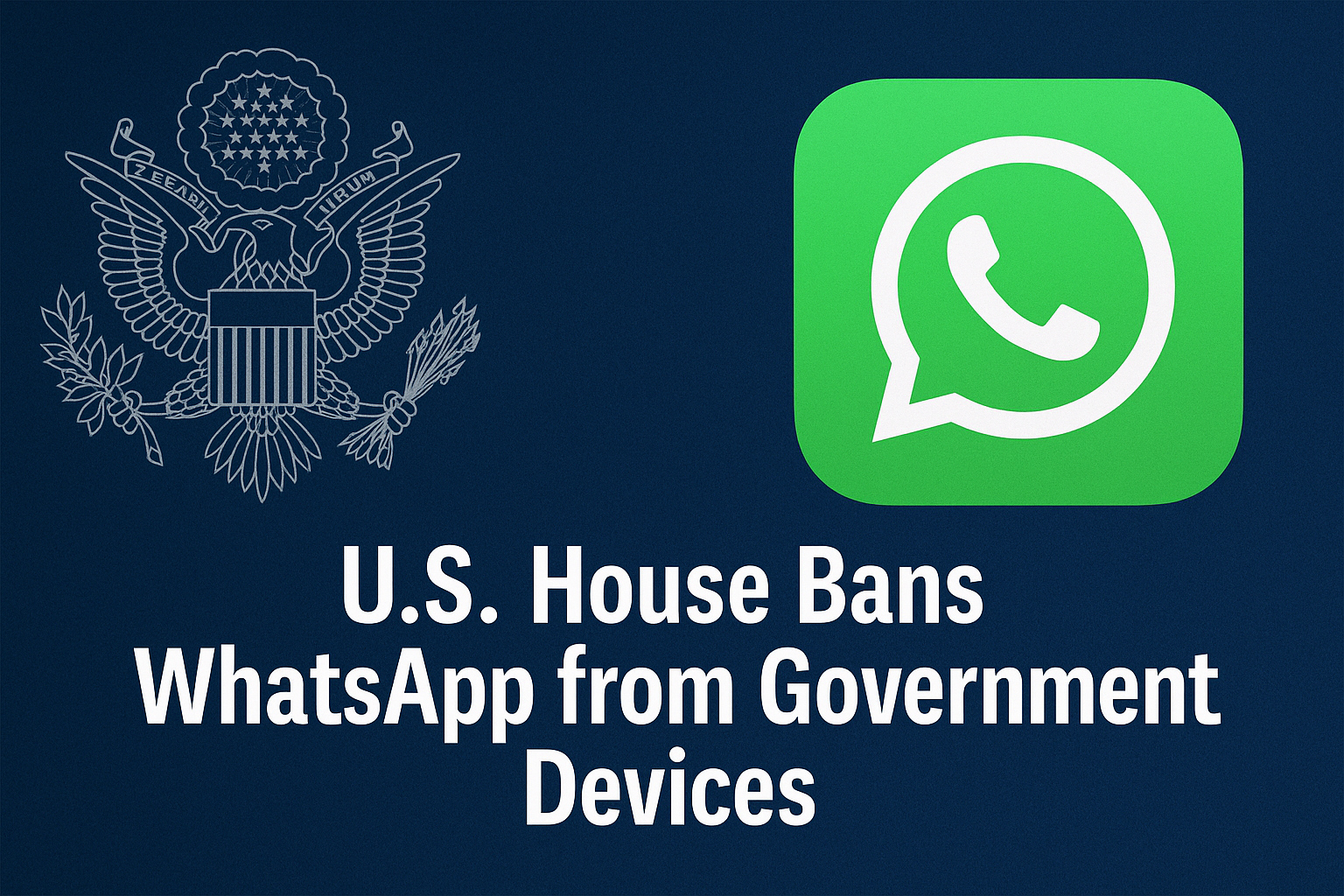In a move that underscores the rising tension between consumer-grade convenience and enterprise-grade security, the U.S. House of Representatives has banned WhatsApp from all government-issued devices.
Effective June 2025, the House’s Office of Cybersecurity flagged Meta’s messaging app as “high risk,” citing inadequate data transparency, the absence of stored data encryption, and potential surveillance vulnerabilities. The decision follows a memo issued by Chief Administrative Officer Catherine Szpindor, requiring staff to uninstall WhatsApp from House-managed phones, desktops and browsers.
While this ban applies only to the House—and not to the Senate or other federal agencies—it reflects a broader trend: governments are tightening control over applications that fail to meet strict security expectations.
Why now?
Security concerns escalated following a January 2025 spyware incident involving Israeli firm Paragon Solutions, which allegedly targeted 90 WhatsApp users, including journalists and human rights advocates. Simultaneously, Meta’s upcoming plan to introduce in-app advertising—potentially using user location, language and engagement data—has drawn scrutiny from privacy advocates.
Although WhatsApp provides end-to-end encryption for message content, metadata—such as timestamps, contact graphs and usage patterns—remains accessible. In sensitive environments like government or defence, such signals can be exploited by adversaries.
Meta strongly disagrees with the U.S. House’s risk classification. A spokesperson noted the platform “offers a higher level of security than most of the apps on the CAO’s approved list,” and emphasized its encryption safeguards.
Part of a broader shift
The WhatsApp ban mirrors earlier decisions, including the 2022 TikTok prohibition and restrictions on tools like ChatGPT and Microsoft Copilot. The common denominator: perceived data sovereignty risks or lack of administrative control in foreign or opaque systems.
For cybersecurity professionals, this sends a clear message. Critical environments demand messaging platforms with not only encryption, but also enterprise management features—such as audit logging, policy enforcement and metadata controls.
Quick comparison: WhatsApp vs. secure alternatives
| Aspect | Recommended Alternatives | |
|---|---|---|
| Encryption | End-to-end for content only | Signal, Wickr, Microsoft Teams |
| Metadata control | Limited | Wickr (military-grade); iMessage (Apple ecosystem) |
| Risk level | High (per House memo) | Low to moderate, with audit capabilities |
| Use case | Consumer-oriented | Enterprise-focused, regulated-sector ready |
What’s next?
Given growing regulatory pressure—and high-profile data misuse incidents—expect further restrictions on apps that blur the line between private messaging and corporate exposure. The U.S. House’s WhatsApp ban could be a catalyst for similar moves in healthcare, finance, and critical infrastructure sectors globally.
